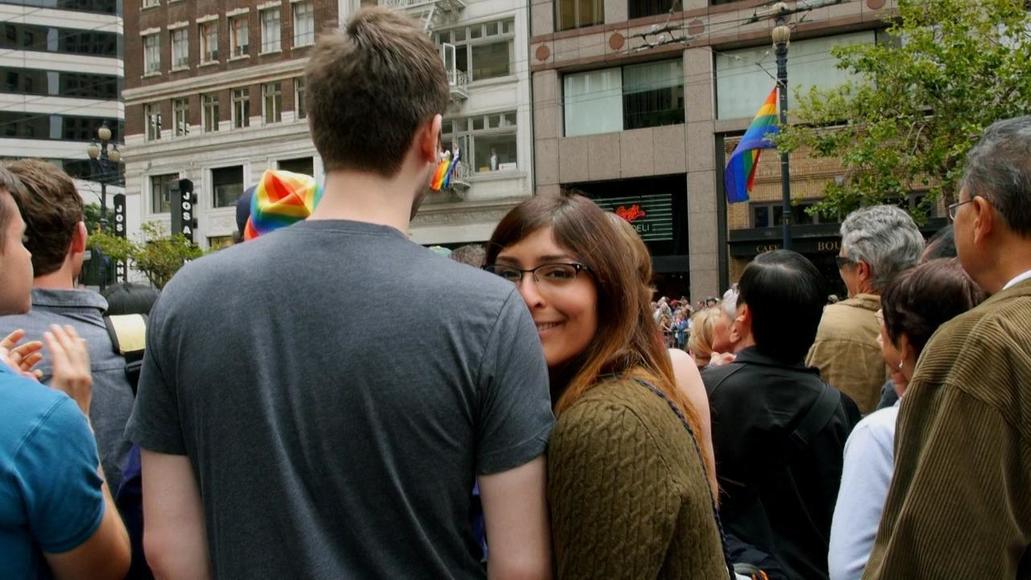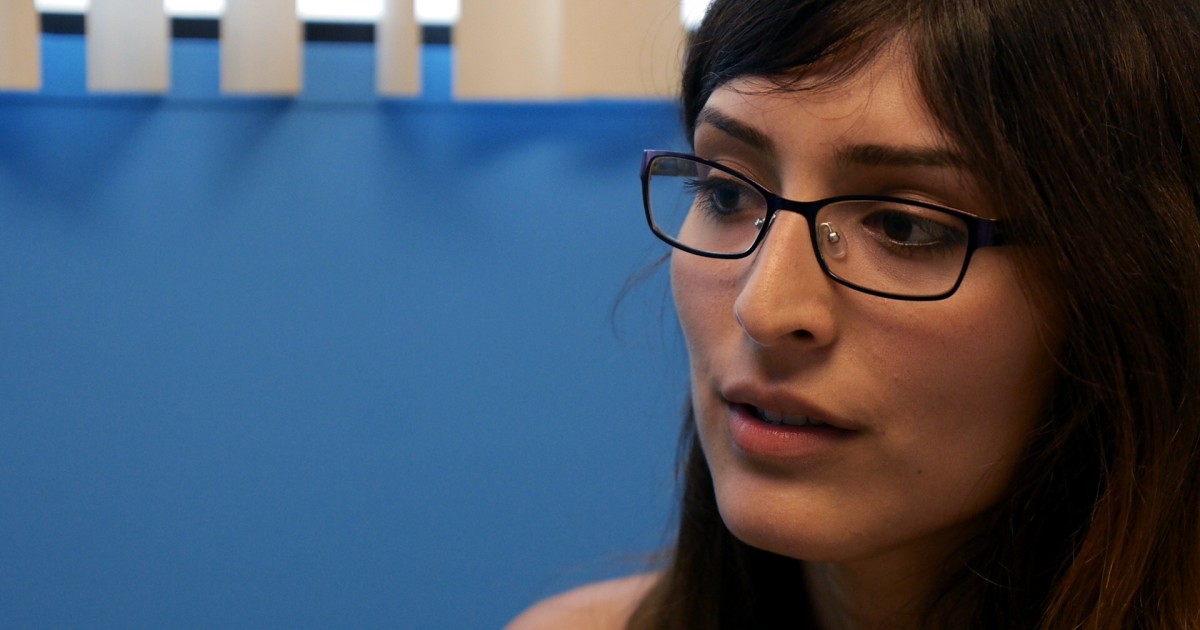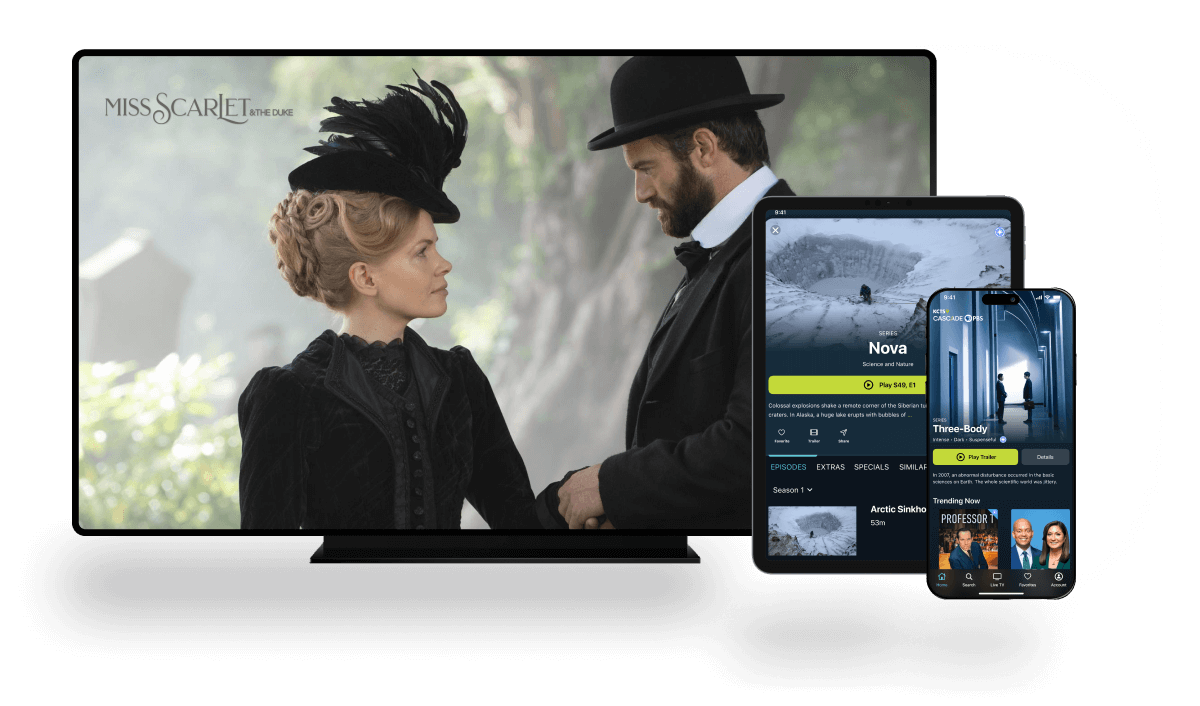
Q&A: Director Jonathan Skurnik talks Becoming Johanna
Becoming Johanna’s Jonathan Skurnik discusses the story behind the film.
How does it feel when your mom prays every day for you to be someone else?
That’s the struggle facing Johanna, a transgender Latina teen in the documentary Becoming Johanna, airing as an encore presentation on Saturday, June 25, at 11:30 p.m. on KCTS 9. At first, Johanna’s mother thinks Johanna is confused, but as her transformation continues, her mom simply can’t handle the changes.
Ultimately, Johanna refuses to let her mother’s rejection define her life, and she continues the journey toward becoming comfortable in her own skin. She finds mentors and a family-of-choice who love and support her and enable her to thrive. Johanna’s story offers hope that we can build communities that accept all of our children – just the way they are.
But what does it take to tell such a personal story and to dedicate yourself to following years of someone else’s life? Becoming Johanna director Jonathan Skurnik chatted with us about his inspiration for the film and telling Johanna’s story. Before tuning in, get a glimpse at the hard work and respect that went into creating the film.
This interview has been edited and condensed.
What inspired you to tell this story?
As I started working on it, people were like, “Well, you’re cisgender white dude, why are you making a film about trans kids, and some of them trans kids of color?” I had to really think about that, what is it that’s really pulling me toward this? Because, when I get pulled toward a film, there’s something deep inside that connects me to the topic.
I kind of just had to remember, because I think I had in some ways occluded it … I was not a trans kid. But, I was definitely gender-noncorming. I liked to paint my toenails, and wear my sister’s dresses, and play with dollhouses. At home, it was fine. My parents didn’t care about it. At school, I got incredibly bullied for being a “sissy,” for being “girly.” I remembered that there was a deep connection that I had and my filmmaking was really motivated by wanting to create safer spaces for kids and safer schools for kids, so they didn’t have to go through that same kind of trauma that I went through, being bullied by other kids. Which unfortunately is as common today as it ever was.
How did you gain trust with Johanna to tell her story?
In terms of building trust, that was definitely a process over time. When I first met Johanna, she was 16 years old. That was something I was very, very aware of. The differentials in power, in a certain way. And, I really wanted to be super thoughtful about that. So, we just filmed a little bit at the beginning and got to know each other. I told her at the very beginning, “If at any time in this process, you feel like, ‘Forget it, I don’t want to be part of this film,’ just tell me. I’ll stop filming. I’ll throw away the footage.”
I really wanted her to feel empowered, that she was sort of telling her own story. And to really set it up as a partnership. We filmed for five years. So, by the end of the five years, we were actually good friends, and collaborators. Even at the end, even after I put in all this time and money, I said, “Look, even now if you decide you don’t want this film to be out in the world, I won’t put it out in the world.” And I meant that.

You worked on the film starting in about 2010, and it first came out in 2016. What, if anything, has changed in the cultural conversation about trans people and their stories during that time? How did that affect creating the film?
There’s definitely a huge change, as you can imagine, in the cultural conversation. There was also a huge change in the philanthropic world, which I noticed even more as someone trying to get funding for the film.
When I started working on this project, basically hardly anyone was covering this issue. And then, by the time I was done, everyone was. Every major magazine, every major TV network had multiple cover stories and features on trans youth. I saw it going from a very marginalized, media-uninterested story to front and center. So, the cultural conversation definitely blossomed around this issue, as it continues to do so.
When I started, it was hard to get funding from progressive funders … By the time I needed more money to finish, all of a sudden these funders were — funders who were originally saying transphobic things — were now funding [these projects]. And I was able to get the funding to finish the film. That was amazing. There’s now a bunch of philanthropies that are funding specifically trans issues, and that certainly wasn’t the case when I started.
What do you hope parents take away from this film?
What I am hoping caregivers and parents take away from this is what basically [Johanna’s parents say]. Which is that we have to accept our kids and trust our kids to know who they are. And, follow their lead and accept them just as they are so they can feel loved, regardless.
No matter who your kid is, if your child is showing up in a way that challenges your own ideas about what’s normal, what’s appropriate — as long as they’re not hurting themselves or someone else — try to understand them. Try to love them through it. Don’t reject them. I think that’s the key thing that I’d like parents to take away. We have so much to learn from young people in our lives. Even if it challenges us. Let’s stay in a place of curiosity and learning and love. Rather than a place of challenge and rejection.
Don't miss Becoming Johanna, Saturday, June 19, at 11:30 p.m.

Caroline Gerdes
Caroline Gerdes is the Marketing Manager at Cascade Public Media. Before working for Cascade Public Media, Caroline was a freelance writer and she worked for National Geographic as a grantee and digital producer. She is also the author of the book, An Oral History of the New Orleans Ninth Ward.








